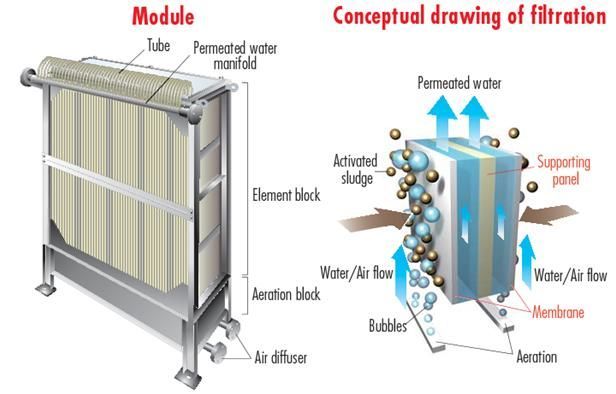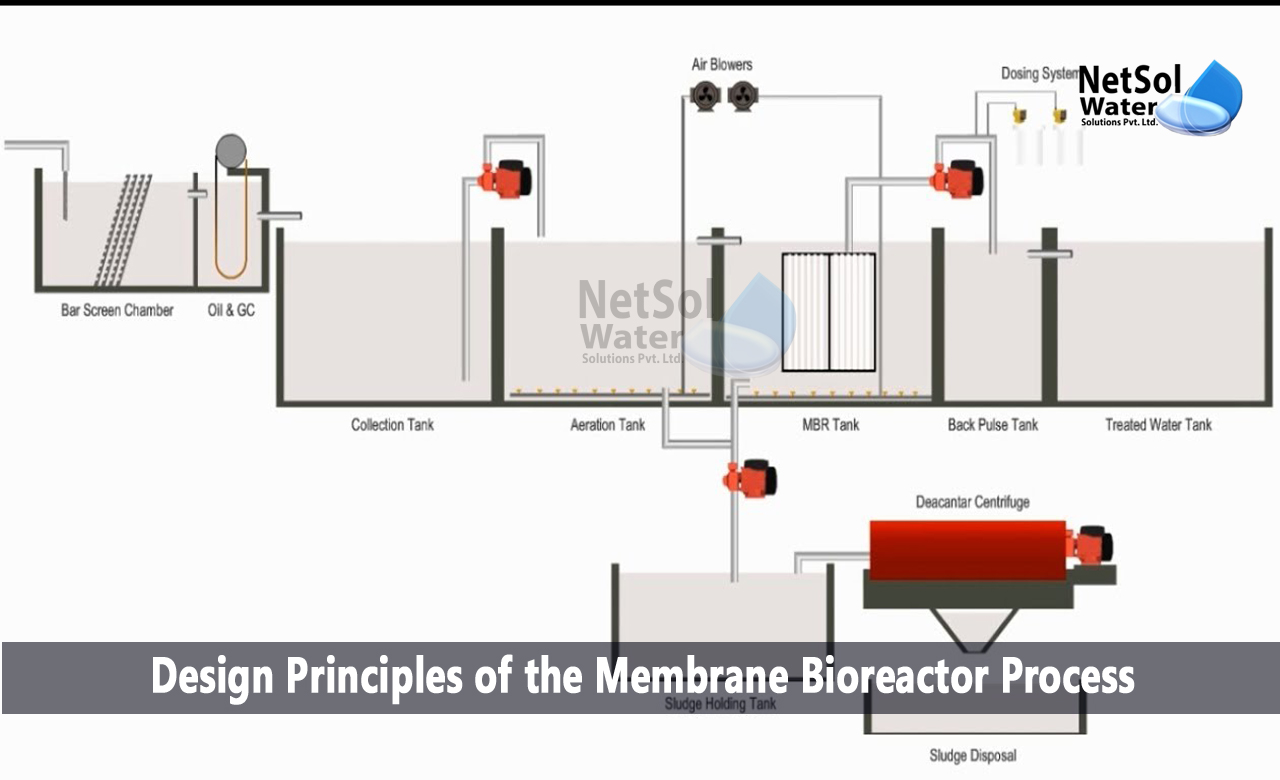Understanding the Basics of Membrane Bioreactor Systems for Wastewater Management
Wiki Article
Membrane Bioreactors Explained: Reliable Solutions for Clean Water
Membrane bioreactors (MBRs) have actually arised as an innovative solution for attending to the pushing challenges of wastewater therapy - Membrane Bioreactor. By incorporating organic procedures with innovative membrane filtration, MBRs not only boost the top quality of treated water however likewise decrease the spatial demands of therapy centers.
What Are Membrane Bioreactors?
Membrane bioreactors (MBRs) are innovative wastewater therapy systems that incorporate biological degradation processes with membrane layer filtration innovation. This assimilation enables for the effective elimination of impurities from water, making MBRs a preferred choice in different applications, consisting of municipal wastewater therapy and industrial effluent monitoring.
Among the vital advantages of MBRs is their ability to create top notch effluent, frequently ideal for reuse in watering or commercial procedures. Furthermore, MBRs require a smaller impact contrasted to standard treatment systems, making them perfect for metropolitan settings where space may be limited.
Moreover, MBRs can properly handle differing influent tons and are less at risk to the impacts of harmful shocks. These attributes add to their expanding appeal as a lasting service for dealing with the increasing demand for tidy water while decreasing ecological impacts.
Exactly How Membrane Bioreactors Work
While the procedure of membrane bioreactors (MBRs) may appear complicated, it basically focuses on the synergy between organic procedures and membrane layer filtering. MBRs incorporate a biological treatment process, normally turned on sludge, with a membrane layer splitting up system to treat wastewater effectively.In an MBR system, wastewater is initial presented right into a bioreactor where microorganisms degrade organic matter and various other impurities. The organic task reduces the focus of toxins while promoting the growth of biomass. Following this biological treatment, the combined liquor undergoes membrane layer filtering, which can be microfiltration or ultrafiltration, relying on the desired effluent quality.
The membranes serve as a physical barrier, permitting water and small solutes to pass while retaining suspended solids and bigger particles. This allows the system to keep a high concentration of biomass within the reactor, enhancing the therapy effectiveness.
Moreover, the continuous separation of treated water from the biomass assists in a compact design and lessens the footprint of the treatment center. Generally, the mix of organic degradation and membrane filtering in MBRs leads to effective and dependable wastewater therapy, ensuring premium effluent appropriate for various applications.
Advantages of MBR Technology
One of the key benefits of membrane layer bioreactor (MBR) innovation is its ability to generate top notch effluent with a considerably lowered impact contrasted to traditional wastewater treatment methods. MBR systems successfully incorporate biological treatment and membrane filtration, leading to remarkable removal of pollutants, consisting of put on hold solids, virus, and natural matter. This capability results in effluent that often meets or goes beyond rigid regulative criteria for reuse and discharge.In addition, MBR technology permits higher biomass concentrations, which improves the therapy performance and reduces the needed activator volume. This portable style is specifically useful in city locations where space is limited. The operational versatility of MBR systems additionally implies they can adapt to varying influent top qualities and flow rates, making them suitable for a variety of applications.
Moreover, the lowered sludge production connected with MBR processes adds to lower operational and maintenance expenses. The membrane layers serve you can check here as a physical obstacle, reducing the threat of blocking and allowing longer functional durations in between cleaning. Overall, the advantages of MBR innovation make it an appealing option for lasting wastewater treatment, dealing with both environmental worries and the need for effective resource administration.
Applications of Membrane Bioreactors
see this With their adaptability and efficiency, membrane bioreactors (MBRs) find applications throughout numerous fields, including municipal wastewater therapy, commercial procedures, and even water recovery. In local settings, MBRs offer a portable option for dealing with wastewater, properly getting rid of contaminants while all at once generating top notch effluent that meets strict regulatory criteria. This makes them particularly suitable for areas with minimal space.In commercial applications, MBR technology is utilized for dealing with process water, especially in industries such as food and drink, drugs, and petrochemicals. These industries take advantage of MBRs' capacity to handle high organic loads and their performance in recuperating useful resources from wastewater, such as nutrients and water.
Furthermore, MBRs play an important role in water reclamation efforts, making it possible for the reuse of treated wastewater for watering, commercial procedures, or perhaps as safe and clean water after additional treatment (Membrane Bioreactor). Their efficiency in removing contaminants and microorganisms makes them a trusted selection for making certain water top quality in various reuse applications
Future of Water Treatment Solutions
The future of water therapy solutions is positioned for transformative advancements driven by technological development and increasing environmental recognition. As worldwide water deficiency becomes a pushing issue, new approaches, including membrane layer bioreactor (MBR) systems, are set to play an essential duty in enhancing the performance and sustainability of water treatment processes.Emerging modern technologies such as synthetic intelligence and machine understanding are anticipated to maximize therapy procedures, permitting real-time tracking and predictive maintenance. This will boost the total integrity and performance of water treatment facilities. Innovations in membrane products, such as graphene and nanofiltration, guarantee to boost permeation prices and minimize fouling, leading to reduced energy intake and operational prices.
In addition, the combination of sustainable power resources into water treatment plants will contribute to greener practices. The Check This Out round economic climate design will also obtain grip, urging the recuperation of beneficial sources from wastewater, such as nutrients and energy.
Conclusion

Membrane bioreactors (MBRs) have actually emerged as an innovative remedy for dealing with the pushing challenges of wastewater treatment. By integrating organic procedures with innovative membrane filtration, MBRs not just boost the top quality of cured water however likewise decrease the spatial requirements of treatment centers.One of the crucial advantages of membrane bioreactor (MBR) innovation is its ability to create top quality effluent with a significantly decreased impact compared to standard wastewater treatment approaches.With their versatility and efficiency, membrane bioreactors (MBRs) locate applications throughout numerous sectors, consisting of community wastewater therapy, industrial processes, and also water reclamation.In verdict, membrane bioreactors represent a considerable improvement in wastewater treatment modern technology, integrating organic processes with effective membrane layer filtering to produce premium effluent.
Report this wiki page